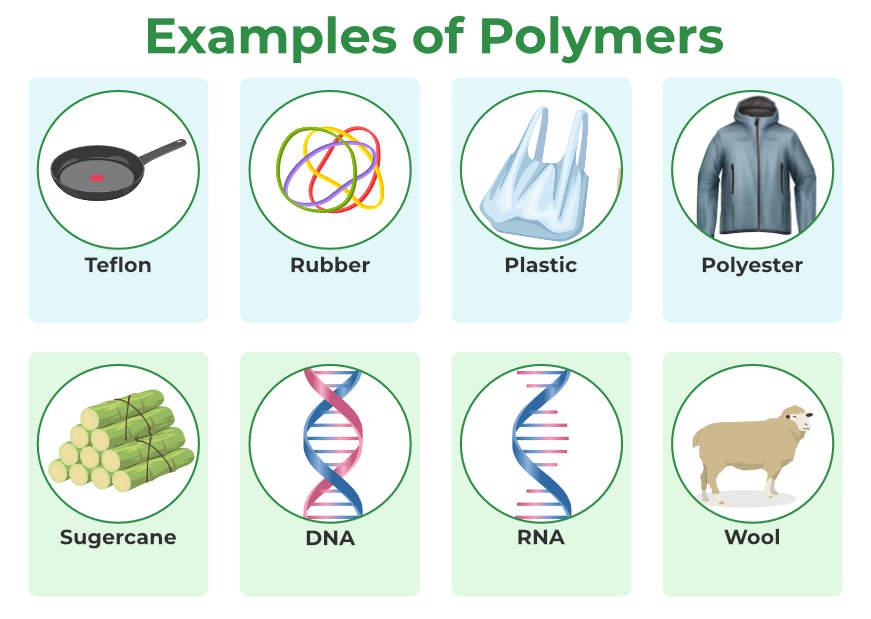Newest Developments in Polymers: Cutting-Edge Technology
Newest Developments in Polymers: Cutting-Edge Technology
Blog Article
Checking Out the Varied Applications and Benefits of Polymers in Different Industries
Polymers, with their varied series of buildings and functionalities, have actually become important in different industries, each enjoying special take advantage of their application. Polymers. From enhancing security and performance in the automotive sector to reinventing medical gadgets in the health care market, polymers play a crucial duty. Moreover, their green nature is changing the landscape of sustainability methods. As we delve into the depths of polymers in electronics, we uncover advanced technologies, while their structural integrity transforms the world of building and construction and facilities. The pervasive impact of polymers across sectors is a testament to their flexibility and flexibility, forming the future of many industries.
Automotive Sector Applications
Polymers play an essential duty in boosting the efficiency and durability of various parts within the automotive field. These versatile materials are thoroughly utilized in the production of various components, varying from interior components to under-the-hood applications. One popular use polymers in the auto market remains in the manufacturing of light-weight parts. By changing standard metal get rid of polymer-based choices, lorries can attain better fuel effectiveness without compromising on toughness or safety and security.

Healthcare Market Benefits
In different health care applications, the advantages of using polymers are commonly acknowledged for their diverse variety of advantageous properties. Polymers play a crucial function in the healthcare sector as a result of their flexibility, biocompatibility, and cost-effectiveness. One of the primary advantages of polymers in healthcare is their ability to be tailored to certain needs, such as versatility, durability, and biodegradability, making them perfect for a variety of medical applications.
Polymer-based materials are extensively utilized in medical gadgets, such as catheters, implants, prosthetics, and drug delivery systems, as a result of their biocompatibility and capacity to resemble all-natural tissues. These materials can lower the threat of sensitive responses or beings rejected, improving patient security and end results. Furthermore, polymers are lightweight, making them appropriate for wearable medical tools and making certain individual comfort.
In addition, polymers make it possible for the advancement of cutting-edge treatment approaches, such as hydrogels for tissue design and learn the facts here now nanocomposites for targeted drug distribution. Their simplicity of processing and sterilization makes them essential for preserving high criteria of hygiene in health care settings. Generally, the varied advantages of polymers contribute considerably to innovations in clinical modern technology and patient care.
Ecological Advantages of Polymers

Furthermore, polymers can contribute to power financial savings due to their lightweight nature. In industries such as transportation, lightweight polymer materials can help in reducing gas usage and greenhouse gas exhausts. In addition, polymers can make it possible for the growth of energy-efficient products such as insulation materials that enhance energy preservation in buildings.
Additionally, polymers play a crucial role in decreasing water contamination. For instance, using polymer-based purification systems can successfully get rid of contaminants and pollutants from wastewater, securing water sources and ecosystems. Overall, the ecological advantages of polymers make them important assets in advertising sustainability and environmentally friendly practices throughout numerous markets.
Polymers in Electronics and Technology
Considering the enhancing demand for cutting-edge and lasting options in contemporary sectors, the combination of advanced polymer innovations in the realm of electronic devices and innovation has become a critical technique for driving performance and efficiency. Polymers have actually changed the electronics sector by allowing the production of lighter, a lot more adaptable, and resilient electronic tools. From mobile phones to clinical gadgets, polymers play an important duty in enhancing product design and performance.
One significant advantage of polymers in electronics is their insulating residential or commercial properties, which aid safeguard fragile electronic elements from ecological elements and electric interference. Furthermore, polymers are crucial in the advancement of flexible screens, wearable modern technology, and printed electronic devices, supplying unlimited opportunities for creating wise and interconnected tools.
Additionally, using polymers in digital packaging has brought about advancements in miniaturization and thermal monitoring, enhancing the total efficiency and reliability of electronic systems. As innovation proceeds to advance, about his the convenience and adaptability of polymers will most certainly drive further development in the electronic devices sector, forming the future of technology.
Duty of Polymers in Construction and Facilities
Polymers use many advantages in the building and construction sector due to their versatility, resilience, and cost-effectiveness. One key duty of polymers in building is their use in coverings and sealers, supplying protection against environmental factors such as wetness, UV radiation, and corrosion.
In addition, polymers play an essential role in sustainable building and construction techniques by allowing the advancement of energy-efficient frameworks. Shielding products made from polymers help control interior temperature levels, lowering the need for heating and cooling systems and eventually lowering energy usage - Polymers.
Final Thought
Finally, polymers play an essential function in different sectors such as automobile, medical care, environmental, electronic devices, and building and construction. Their versatile homes make them beneficial in creating ingenious services and products. From boosting gas performance in vehicles to enhancing medical gadgets, polymers use many advantages. Furthermore, their effect on minimizing waste and advertising sustainability highlights their value in contemporary applications. The extensive use of polymers demonstrates their significant contribution to progressing technology and improving lifestyle.
Report this page